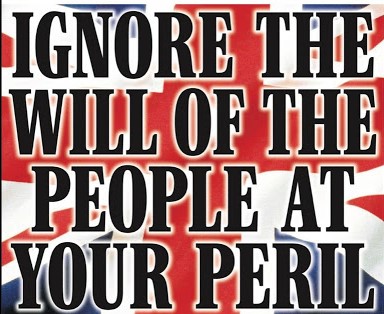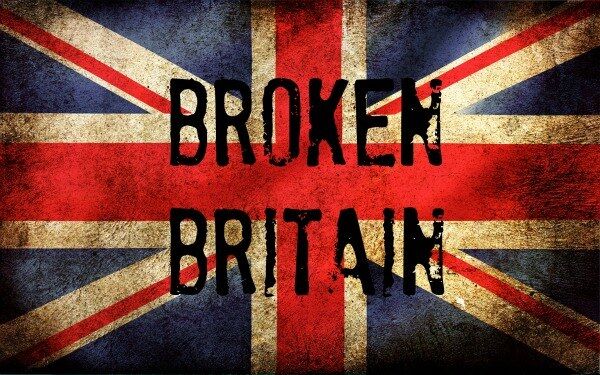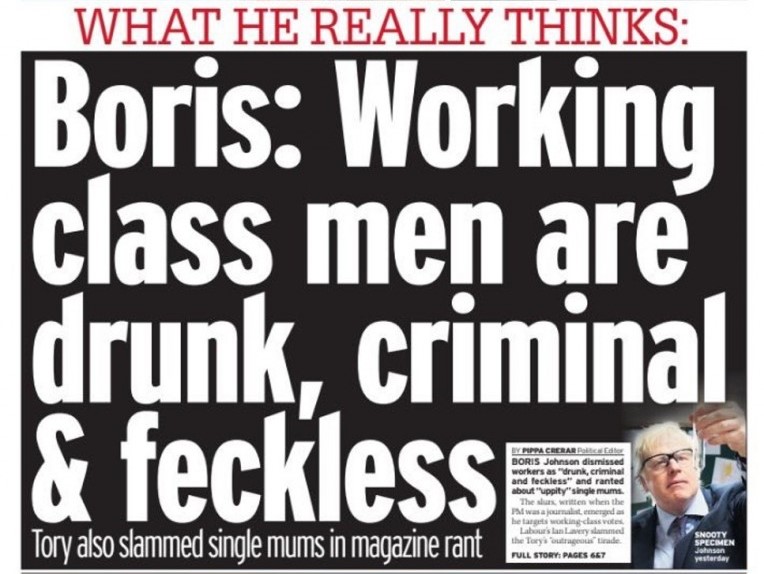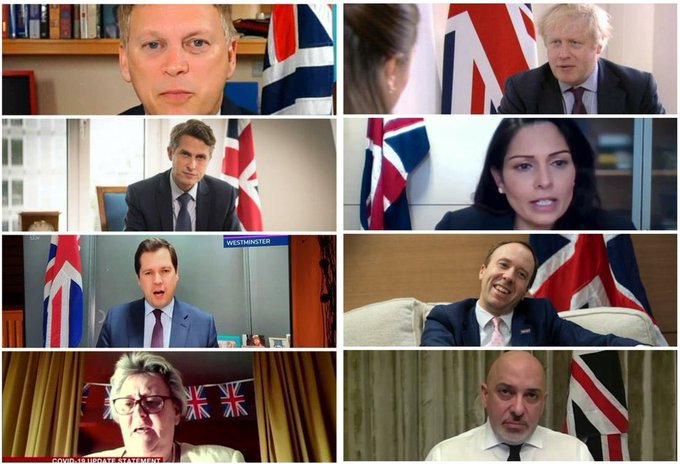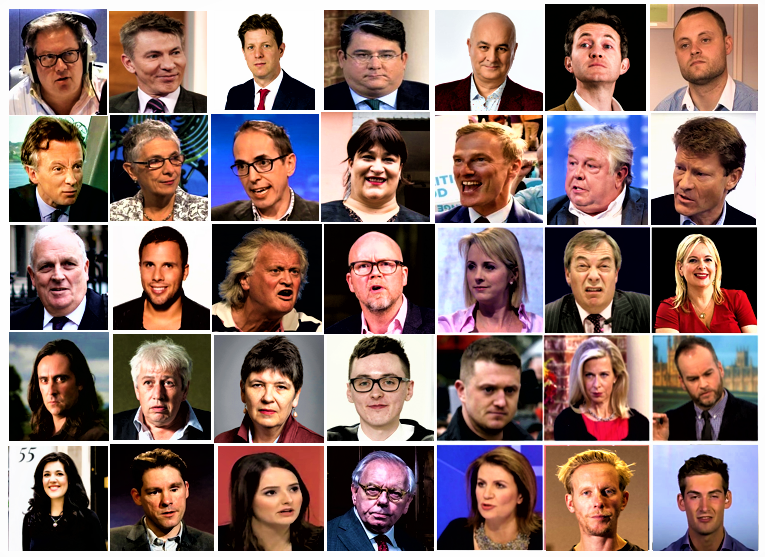
A THREAD about neoliberalism & corporate propaganda.
For forty years, neoliberal economic & political policies have profoundly shaped our present by introducing a form of hyper-deregulated hyper-free-market capitalism, with four main attributes:
For forty years, neoliberal economic & political policies have profoundly shaped our present by introducing a form of hyper-deregulated hyper-free-market capitalism, with four main attributes:
1 Shrinking the role of the state;
2 Centrality of the market to enable the buying & selling of goods & services & drive economic growth
3 Risk is a central organising concept;
4 Collective responsibility replaced with a competitive individualism driven by self-responsibility.
2 Centrality of the market to enable the buying & selling of goods & services & drive economic growth
3 Risk is a central organising concept;
4 Collective responsibility replaced with a competitive individualism driven by self-responsibility.
A corporation is basically a large company or group of companies authorised to act as a single entity & recognized as such in law: a legal entity distinct from its owners, which enjoys most of the rights & responsibilities that individuals possess.
Corporations have limited liability (shareholders may take part in the profits through dividends & stock appreciation, but are not personally liable for the company's debts). Corporations are not always for-profit.
We can measure the size of corporations in different ways:
We can measure the size of corporations in different ways:
Corporations can be measured by:
1 Employees - Walmart had about 2.2 million employees in the fiscal year of 2019
2 Market valuation - Apple is valued at around $2trillion
3 Profit - Saudi Aramco (Saudi Arabian Oil Company) made around $100 billion in 2019.
1 Employees - Walmart had about 2.2 million employees in the fiscal year of 2019
2 Market valuation - Apple is valued at around $2trillion
3 Profit - Saudi Aramco (Saudi Arabian Oil Company) made around $100 billion in 2019.
A corporation's goals can be for-profit or not, as with charities. The vast majority aim to provide a return for its shareholders – people who invest in the corporation in the form of shares.
Under neoliberalism, the size & number of corporations has increased significantly.
Under neoliberalism, the size & number of corporations has increased significantly.
Neoliberalism can be thought of as ‘adherence, in rhetoric, if not in practice, to the virtues of a free-market economy, & by extension, a market orientated society’
Corporations first really took off in the USA at the turn of the last century.
Corporations first really took off in the USA at the turn of the last century.
Who holds power in the markets dominating the ‘global economy’?
“It remains a fact that in almost every act of our daily lives… we are dominated by the relatively small number of persons…. who understand the mental processes & social patterns of the masses” - Edward Bernays
“It remains a fact that in almost every act of our daily lives… we are dominated by the relatively small number of persons…. who understand the mental processes & social patterns of the masses” - Edward Bernays
“The conscious & intelligent manipulation of the organized habits & opinions of the masses is an important element in democratic society” - Edward Bernays
Bernays helped move capitalist societies on from a needs based economy to a desires based one, giving rise to #consumerism.
Bernays helped move capitalist societies on from a needs based economy to a desires based one, giving rise to #consumerism.
Throughout the 1900s, the USA & many other 'western' economies moved from an industrial (manufacturing based) to post-industrial economies, characterised by multinational corporations & the process of globalisation - what we might call 'a branded world'.
The rise of public relations - the techniques of which were pioneered by Bernays, Ivy Lee, & Walter Lippmann in the early twentieth century - was in parallel with the rise of free-market capitalism, & broadly speaking, three key areas of PR developed:
1) An awareness of reputation, relationship building, & branding increased ‘Internal public relations' – “Every member of staff is a public relations officer”
2) Use of mass communications - evolution of Radio, TV & Internet
3) The rise of lobbying (which I’ll discuss later)
2) Use of mass communications - evolution of Radio, TV & Internet
3) The rise of lobbying (which I’ll discuss later)
A snapshot of how Britain’s economy changed:
1948 - 41% manufacturing & 46% services
2013 - 13% manufacturing & 79% services
The rise in the use of PR by big business was meteoric:
1979 – 20% of top 500 companies used PR consultancies
1984 – 69% - with 90% of top 100 companies
1948 - 41% manufacturing & 46% services
2013 - 13% manufacturing & 79% services
The rise in the use of PR by big business was meteoric:
1979 – 20% of top 500 companies used PR consultancies
1984 – 69% - with 90% of top 100 companies
Big business looks to influence politicians – why?
To try & produce conditions favourable to the maximisation of 'wealth generation' - & thus profit - including facilitating a shift to a globalised economy, which includes the objective of free-trade across the globe.
To try & produce conditions favourable to the maximisation of 'wealth generation' - & thus profit - including facilitating a shift to a globalised economy, which includes the objective of free-trade across the globe.
“Globalisation involves the homogenisation processes, in which goods & services are available to the same standard globally, & branded internationally” - L’Etang 2008
Big business leaders increasingly search for the most favourable business environments across the globe.
Big business leaders increasingly search for the most favourable business environments across the globe.
The structure of the financial system gives more power to those who possess wealth & who can move their money around the global system. Financial markets operate around the clock - investors can quickly move money out of countries that adopt policies which might threaten profits.
Under Thatcherism, Keynesianism was replaced with corporate influence. The material consequences have been decades of policy-making which benefits those who dominate elite City networks: the interests of big business have predominated at the expense of other parts of society.
Corporate public relations is increasingly a global business activity, & the PR industry is intimately linked with the power of capital. Corporate PR has two key interrelated functions:
1 To protect & enhance corporate power
2 To promote the ideology & practice of #consumerism.
1 To protect & enhance corporate power
2 To promote the ideology & practice of #consumerism.
Lobbying plays a key role in this process.
The principle of ‘lobbying’ has been around for thousands of years: in Greek & Roman civilisations the lobbying of politicians was commonplace. Modern use of the term is taken from the lobbies - the 'corridors of power' - in parliament.
The principle of ‘lobbying’ has been around for thousands of years: in Greek & Roman civilisations the lobbying of politicians was commonplace. Modern use of the term is taken from the lobbies - the 'corridors of power' - in parliament.
Lobbying is any action designed to influence the actions of the institutions of government.
Unions, Charities, Universities, trade associations & other influential organizations - but *especially* corporations - spend £billions each year on lobbying.
Unions, Charities, Universities, trade associations & other influential organizations - but *especially* corporations - spend £billions each year on lobbying.
Forty years ago, people were as interested in politics as they are today, but were less politicized in a national sense - the media did not bring the work of the Govt into every sitting room. But since 1979, lobbying has grown in parallel with the rise of the corporate world.
As issues have proliferated for corporations eg increased scrutiny (FOI) & growth in the number of Govts open to lobbying - so the need to lobby has increased.
And while the public want Govts to do more for them, trust in Govt is declining, resulting in lower voter turnouts –
And while the public want Govts to do more for them, trust in Govt is declining, resulting in lower voter turnouts –
The ‘majority’ of voters feel (and in our hyper-partisan times, ARE) unrepresented, & millions of voters justifiably feel their vote has little or no impact on Government policy: in the 2019 UK general election, less than 3 in 10 voters voted for the current Tory Government.
Corporate actors find it much easier to promote their interests in Govt than do more fragmented or less wealthy groups, especially public interest groups.
The rise in economic inequalities is linked to unequal political representation: excessive lobbying causes biased politics.
The rise in economic inequalities is linked to unequal political representation: excessive lobbying causes biased politics.
The main concern is that large corporations wield far too much power, resulting in profit being prioritised over pressing social issues, & the lack of transparency is seen as major problem for society, manifested in continuing public concern over big corporations avoiding tax.
Free market ideologues argue that lobbying ensures a healthy democracy.
Detractors argue that only the rich & powerful can afford sophisticated lobbying campaigns, which exerts an unfair influence on Governmental decision making around budgets, legislation, & policies.
Detractors argue that only the rich & powerful can afford sophisticated lobbying campaigns, which exerts an unfair influence on Governmental decision making around budgets, legislation, & policies.
Britain & America are two of the biggest providers of lobbying expertise, often done through the larger PR agencies, who often employ ex-MPs.
There is a great deal of research into the influence of lobbyists, including the more recent development of so-called 'think tanks'.
There is a great deal of research into the influence of lobbyists, including the more recent development of so-called 'think tanks'.
Thinks tanks are difficult to define as the term applies to various organisations with different objectives, characteristics, priorities, development pathways & different business models & structures.
Organisations labelled think tanks include for-profit consultancies, university-based research centres, non-governmental organisations (NGOs), public policy bodies, foundations, advocacy organisations & membership-based associations, to name a few.
They perform a wide range of functions, including undertaking research, aiming to influence the public opinion & agenda, monitoring how specific policies are carried out, suggesting, or advocating for policy changes, & so on.
According to the 2019 'Global Go To Think Tank Index Report', the country with the highest number of think tanks is the USA (331), then China (191) Germany (185) & the UK (148).
All think-tanks use lobbying, which includes political communication & political public relations.
All think-tanks use lobbying, which includes political communication & political public relations.
Lobbying is a problem for democracy as it often substitutes special interests for the interests expressed by voters, exacerbated by a lack of transparency: knowledge of lobbyists' activities is not sufficiently available to allow scrutiny or informed democratic decision making.
The transition from welfarism & social democracy to neoliberalism has significantly heightened the problem of lobbying because it has triggered a massive increase in the practice.
The perception & the fact of undue corporate influence has thereby dramatically increased.
The perception & the fact of undue corporate influence has thereby dramatically increased.
We can say with some confidence that the ‘neoliberalisation’ of the public sphere has progressed further in the UK than in other European countries such as Germany & France, & that this has meant the quality of democratic process has been significantly undermined in the UK.
In Britain, the most wealthy & thus the most influential think tanks are the more pro-free-market think tanks, collectively known as The Tufton Street network, which is extraordinarily influential & works extremely closely with well-known British politicians.
The Legatum Institute, TaxPayers Alliance, Vote Leave, the Institute of Economic Affairs, Centre for Policy Studies, & the Adam Smith Institute are among the more infamous.
Investigative journalists, often operating outside of the mainstream, work hard to understand them.
Investigative journalists, often operating outside of the mainstream, work hard to understand them.
Very concerningly, these think tanks are usually the least transparent in terms of who funds them – though investigative journalism, research & a great deal of evidence suggests a huge amount of their income is from wealthy US corporations & US 'libertarian' billionaires.
They are connected to the Atlas Network which supports over 450 organizations around the world to promote its vision of the ‘free-market’ - a euphemism for eliminating govt regulations, rolling back environment laws, & slashing public spending in the interests of the wealthiest.
Atlas Network think tanks are funded by some of the biggest US fossil fuel producers & funders of climate science denial - such as the Koch brothers (through the Koch Foundation & Donors Trust), ExxonMobil & MasterCard, who also fund publications such as Spiked in the UK.
Its donors are notorious for funding climate science denial to the tune of more than one hundred million dollars over two decades, & had massive influence over the Trump administration through relationships with key federal staffers, as well as, less directly, the UK Government.
Disturbingly, 1 in 5 of the new Conservative MPs from 2019 have worked in lobbying or PR for corporate interests, & 4 of Britain’s largest lobbying firms (Portland Communications, Grayling, Hanover Communications & Pagefield) now have at least one former employee in parliament.
The amount spent by corporations on 'persuasive communication' is mind-boggling.
In 2016, US corporations spent at least $200 billion on persuasive communication, what we might call ‘corporate propaganda’, including ads, crisis comms, & a wide range of media & online content.
In 2016, US corporations spent at least $200 billion on persuasive communication, what we might call ‘corporate propaganda’, including ads, crisis comms, & a wide range of media & online content.
Wimberley suggests - & I agree - that the purpose of corporate propaganda is not to aid the 'target publics' in making ‘better’ or ‘fairer’ or more ‘well-informed’ consumer decisions, but *to produce in those target publics, the behaviour, attitudes or conduct the client wants*.
In the USA, public relations techniques emerged & grew in the corporate sector at the beginning of the 1900s, helping to reduce criticism of businesses & their owners, & to drive the influence & profitability of corporations by nurturing the rise of the 'consumer society'.
It’s no coincidence that at the time of spreading suffrage, greater worker empowerment, union power & increased public participation in the democracy, that PR arose as an additional apparatus for corporations to mitigate the effects of democracy on the economic & political elite.
Since the time of Bernays, the corporate propagandists’ primary focus has been on the *transformation of the relationships between their clients & their publics*, in order to facilitate the profitability & stability of their clients.
PR developed because of the increasingly problematic relations between corporations & their publics in the early 20thC: for instance: unionisation resulting in strikes; increased regulation; boycotts; the ‘muckraking’ (critical journalism); taxation; & even industrial sabotage.
To produce the relationships that corporations wanted, & to displace the most problematic behaviour that corporations did not want, conflict had to be turned into cooperation that would sustain profits in a secure manner.
Wimberley's innovation in thinking about this, is that in order to achieve these relationships, he hypothesises significant changes had to be made to the subjectivity of the publics so that their values, ambitions, desires, & sensibilities were aligned with corporate interests.
The way most research & journalism thinks of corporate propaganda is to think of it as akin to wartime propaganda: that is it attempts to create - through misleading & manipulative persuasive communication - artificial attitudes & desires in the recipient.
This is a mistake.
This is a mistake.
The solution to this would just be to expose the 'manipulative corporate propaganda' with the ‘truth’ – to recover the ‘true’ desires of citizens (perhaps to do with altruism, cooperation, or equality), or to simply expose 'deception' & replace a false belief with a true one.
But if the aim of propaganda is not to deceive, but to produce new subjectivities or ‘subject positions’, which actively shape people who will cooperatively & spontaneously adopt the wanted relationships with corporations, then attempting to ‘uncover the truth’ is doomed to fail:
It would fail because 'the subject' is not simply deceived, but TRANSFORMED by the propaganda, & the task of combatting propaganda will not be best conceived as a project of simply enlightening people about the truth, but as a project of producing new, different subjectivities.
Wimberley suggests the future will have to be actively created by producing new subjects & NOT through trying to recover what has been supposedly hidden, but is better described as lost: without grasping the real impact of propaganda, attempts to counter it will not be effective.
Recall President Herbert Hoover said in 1928 addressing public relations professionals: “You have taken over the job of creating desire & have transformed people into constantly moving happiness machines. Machines which have become the key to economic progress.”
Hoover’s predecessor Calvin Coolidge said much the same thing in 1926:
“Advertising . . . is the most potent influence in [adapting] & changing the habits & modes of life, affecting what we eat, what we wear, & the work & play of the whole Nation.”
“Advertising . . . is the most potent influence in [adapting] & changing the habits & modes of life, affecting what we eat, what we wear, & the work & play of the whole Nation.”
Allow me to spell it out: the aim of corporate propaganda - what euphemistically became termed 'public relations' - is simply to produce the relations between corporations & their 'publics' (customers, employees, & all other stakeholders) that best facilitated the client’s aim.
Adjusting that relationship meant adjusting the conduct of one or both parties, & the most stable & efficient long-term solution was to alter the publics so that they would undertake the desired conduct freely eg when Bernays wanted to get women to smoke Lucky Strike cigarettes:
Bernays approached a psychoanalyst to break the taboo on women smoking. He said cigarettes were related to the phallus (male power) so he enabled women to symbolically appropriate the phallus via a PR stunt, getting women to suddenly start smoking in public during a NY Parade...
signifying their 'independence & challenge to male power': he arranged for photographers to capture this 'scandalous' moment which made the front pages, & he called Lucky Strike cigarettes 'Torches of Freedom' (referencing the statue of Liberty), thus breaking the taboo.
Over the years, corporate propagandists have deliberately manufactured a number of ‘subject positions’ which are complementary to the goals of corporations & free-market capitalism: consumers, employees, managers & even voting publics were key publics created by public relations.
These were subjects that did not exist in 1860 in anything like the numbers that would have to exist in the new century to make giant corporations viable: #propaganda is about creating the kind of publics that are predisposed to the conduct corporations want (subjectification).
So rather than work on a particular issue, crisis, or a product or commodity for sale, many propagandists instead worked to construct the kind of publics (subjectivities) who would not produce behaviour that ran counter to the requirements of the corporation.
Constructing publics whose desires lead them to produce the conduct that propagandists’ clients want, reduces confrontation between the public & corporations AND makes all other attempts to govern the public easier, as they would already be predisposed to the desired conduct.
The propaganda budget of the US Govt is already 20% larger than that of the peak spending of the Nazi regime (about $2 billion/year), but is dwarfed by the $200 billion US corporations spent on propaganda in 2016: this raises serious questions about the health of ‘civil society.’
Propaganda is an integral part of business today, which is to say that the 'governing of the publics' has become one of the key functions of the wealthiest & most numerous institutions of the twentieth and twenty-first centuries: corporations.
“Mass production is only profitable if its rhythm can be maintained - that is, if it can continue to sell its product in steady or increasing quantity" - Bernays, 1928.
A century ago, demand created the supply. Today, supply must actively seek to create its corresponding demand.
A century ago, demand created the supply. Today, supply must actively seek to create its corresponding demand.
A single factory, capable of supplying a continent with its particular product, cannot afford to wait until the public asks for its product; it must maintain constant contact through ads & propaganda with the vast public to assure the continuous demand which makes it profitable.
The problem that PRs & their corporate clients faced was the freedom of subjects to conduct themselves in ways contrary to the desires of corporations: so corporate propaganda aimed to alter the behaviour of subjects & shape it in ways favourable to the new corporate order.
s Wimberley says, in the time of this explosion of new economic, social, & political conduct at the turn of the twentieth century, corporations sought to govern the publics towards the conduct that would enhance their wealth, control, preeminence, & security.
Propaganda is a response to free conduct & an attempt, not to dominate it via violence or physical constraint, but to conduct it in its freedom towards the desired outcomes.
Wimberley suggests this is government through mass subjectification.
Wimberley suggests this is government through mass subjectification.
To briefly illustrate the scale of the change in America at the time PR first emerged: in 1850, 95% of the goods the average American used were self-manufactured & 5% purchased, but by 1950 the equation was more than reversed.
It forces us not just to ask how human beings changed over that period of time, but also how they might yet change.
What else might we have become other than consumers?
And more importantly, what might we be yet?
What else might we have become other than consumers?
And more importantly, what might we be yet?
Propaganda has spent over a century at the hands of elites, mostly corporations, aiming to reconstitute mass subjectivity & public conduct through a new kind of private government; & this has been done very effectively, to the extent, Wimberley argues, we’re hardly aware of it.
Wimberley charts how corporate propaganda has framed & sought to govern public subjectivity without making the assumption that the nature of the subject – individual human nature - is fixed.
The birth of PR & propaganda is also the story of the birth of the modern corporation.
The birth of PR & propaganda is also the story of the birth of the modern corporation.
So in terms of resisting corporate propaganda, it’s not so much a task of 'liberation' from various kinds of 'falsehood', as if underneath all the lies remains an untouched, happy, & flourishing being, waiting to be set free by the truth.
Propaganda has created contemporary subjects (the publics) to be willing & cooperative agents in producing corporate profit & corporate hegemony: if we want the kind of subjects that will produce new & more democratic relations of power & knowledge, they will have to be created.
In the 1980/90s, politicians & their policies came to be formulated by PR people in the same ways that they designed consumer goods: they found what most motivated the target voting publics’ conduct, & created policies & politicians that would appeal to those desires.
Tim Bell gave Margaret Thatcher a makeover – sorting her clothes, bags & hairstyle & making her speak more slowly in a lower tone. Alastair Campbell & others introduced a wide range of PR techniques, often focused on framing media narratives, developing what we now call 'spin'.
PR uses images, symbols, & phrases repeated ad nauseum by those with prestige to try & make a new norm spread through the target public like a contagion; these tactics don't aim to aid in any deliberative/critical thinking project, but aim to govern at a largely subliminal level.
Put bluntly, according to Wimberley, the aim of corporate & political public relations is domination not democracy, government and not reasoning - democracy is only important to public relations/propaganda as a cover in the quest for domination & continued exploitation.
And at the turn of the twenty-first century, the ability of corporations & politicians to use ever more sophisticated forms of propaganda is something that should concern everyone: data is being CONTINUALLY collected about individuals & publics:
Not just from web browsing but from a multiplicity of sources: internet-enabled home devices; financial transactions; ISPs; cameras; mics; facial recognition devices; health care & Govt records; streaming services; GPS & cell phone data; DNA records; wearable health monitors etc.
Hyper-personalization, predictive personalization, & super-targeted marketing are terms that less describe the present than the emergent wave of propaganda beginning to break in the first half of the twenty-first century.
It is already the case that very personal data about family or friends are harvested from social media posts, picture archives stored online, browser history, purchases, & more, then commoditized as data, sold to corporations, & incorporated into propaganda & product design.
This is why data, which doesn’t exist in material form, is now by far the most valuable commodity on earth, more valuable even than oil.
We've sleepwalked into a dystopia, where our subjectivities are relentlessly shaped by faceless corporations, & we're only dimly aware of it.
We've sleepwalked into a dystopia, where our subjectivities are relentlessly shaped by faceless corporations, & we're only dimly aware of it.
Bernays: 'the aim is to co-opt the publics’ strongest drives & “turn” them towards new desires that stabilize & profit the corporation'. The minutiae of our personal lives gets harvested, commoditized & sold to those who use it to create new conduct for us - which benefits them.
If you've made it to the end - well done! Thanks for reading.
Much of this THREAD is based on Cory Wimberley's excellent new book: 'How Propaganda Became Public Relations: Foucault & the Corporate Government of the Public'.
It's available as an eBook, & could be a game-changer.
Much of this THREAD is based on Cory Wimberley's excellent new book: 'How Propaganda Became Public Relations: Foucault & the Corporate Government of the Public'.
It's available as an eBook, & could be a game-changer.
Here's a link to the book.
It's preposterously expensive in print form, presumably because @Routledge_Socio think it might be a bit niche - but like I say, it's available as an eBook/Kindle.
routledge.com/How-Propaganda…
It's preposterously expensive in print form, presumably because @Routledge_Socio think it might be a bit niche - but like I say, it's available as an eBook/Kindle.
routledge.com/How-Propaganda…
And here's another THREAD specifying exactly what forty years of neoliberal free-market capitalism has achieved in Britain:
https://twitter.com/docrussjackson/status/1359445197113950208
• • •
Missing some Tweet in this thread? You can try to
force a refresh







